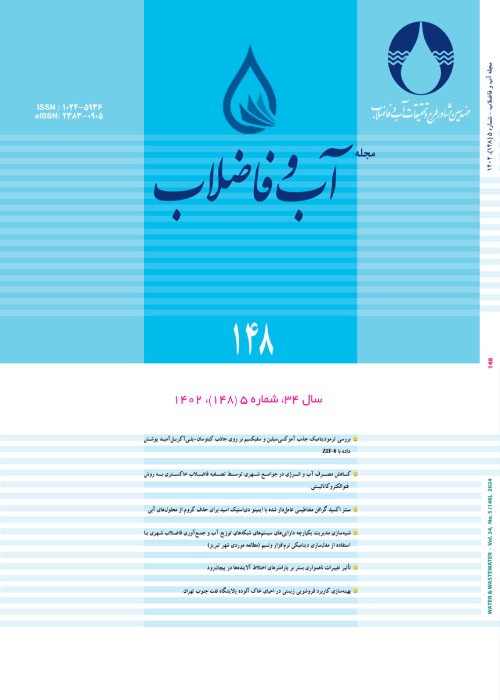Explaining Water Curtailment Behaviors Using the Extended Theory of Planned Behavior (Case Study of Isfahan)
Encouraging households to adopt residential water conservation behaviors, as an efficient strategy for sustainable water supply, has caught the attention of water demand management. However, the success of such policies depends on the voluntary acceptance of these measures by urban households. Considering the important role of psychology in explaining human behavior, the present research explored the key socio-psychological factors underlying the household adoption of WCBs and how these behaviors can be explained by expanding the theory of planned behavior via adding the habit variable to the TPB’s main model. In the current study, which focuses solely on water curtailment behaviors (behavioral conservation), 343 Isfahan citizens participated. In this regard, a cross-sectional survey was conducted using a structured questionnaire, as a research instrument, and the structural equation modeling method was also applied for data analysis. The results revealed that, by adding the habit variable to the TPB's main model, the extended model can predict 75% and 51% in the variance of intention to adopt water curtailment behaviors and water curtailment behaviors, respectively. Based on the findings, the attitude and perceived behavioral control variables had a significant positive relationship with intention, whereby attitude had the most predictive power of intention to adopt water curtailment behaviors. Moreover, the habit and intention variables were significantly and positively related to water curtailment behaviors, of which habit was the most important determinant of behavior. However, subjective norm had no significant relationship with intention, and perceived behavioral control was not significantly related to behavior. Finally, policymakers are advised to develop and implement awareness-raising and education campaigns aimed at (1) creating positive attitude toward WCBs among urban households, (2) increasing their self-efficacy and self-confidence in performing these actions, and (3) improving and/or changing their water conservation habits in order to improve WCBs among urban households.
- حق عضویت دریافتی صرف حمایت از نشریات عضو و نگهداری، تکمیل و توسعه مگیران میشود.
- پرداخت حق اشتراک و دانلود مقالات اجازه بازنشر آن در سایر رسانههای چاپی و دیجیتال را به کاربر نمیدهد.



